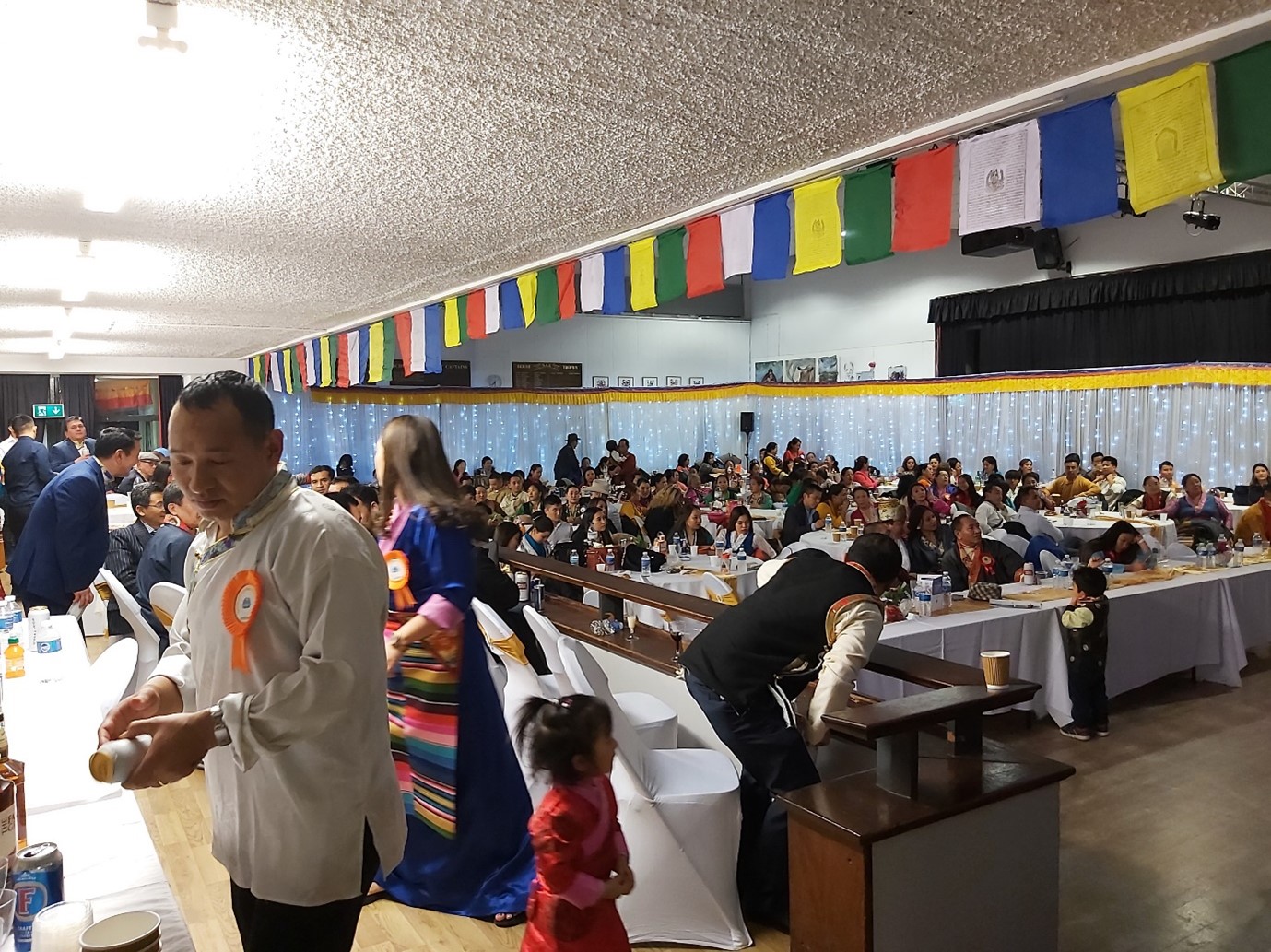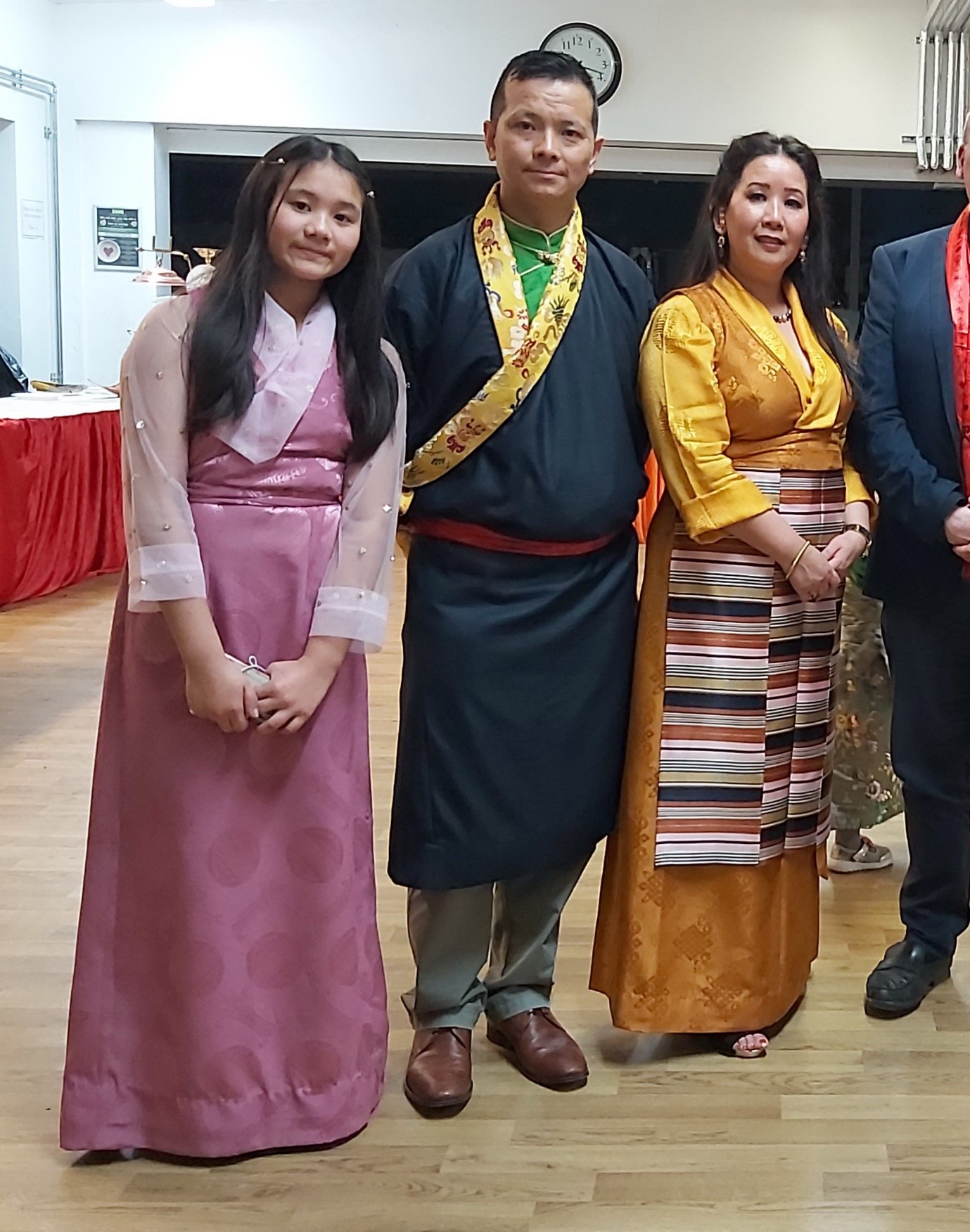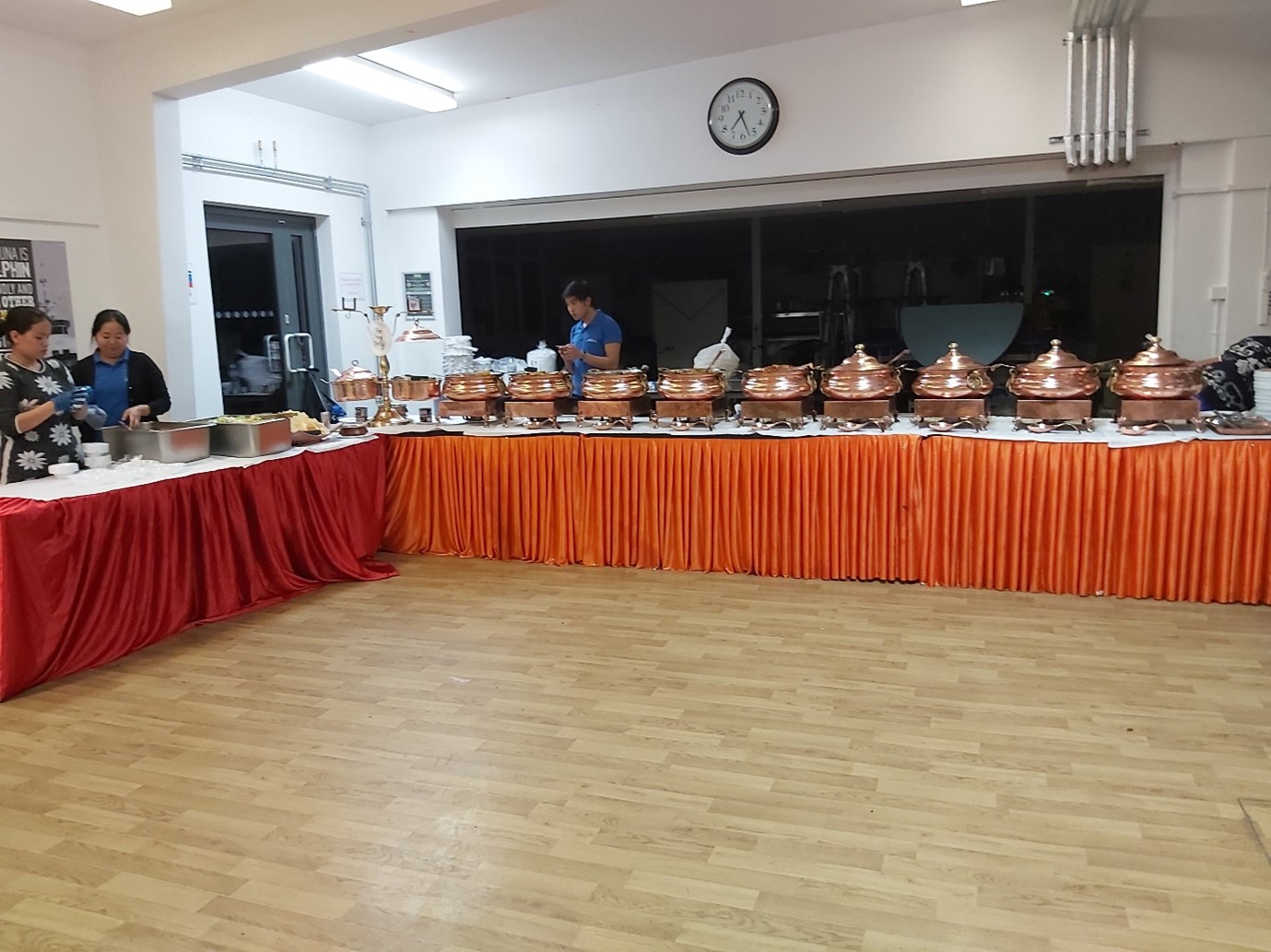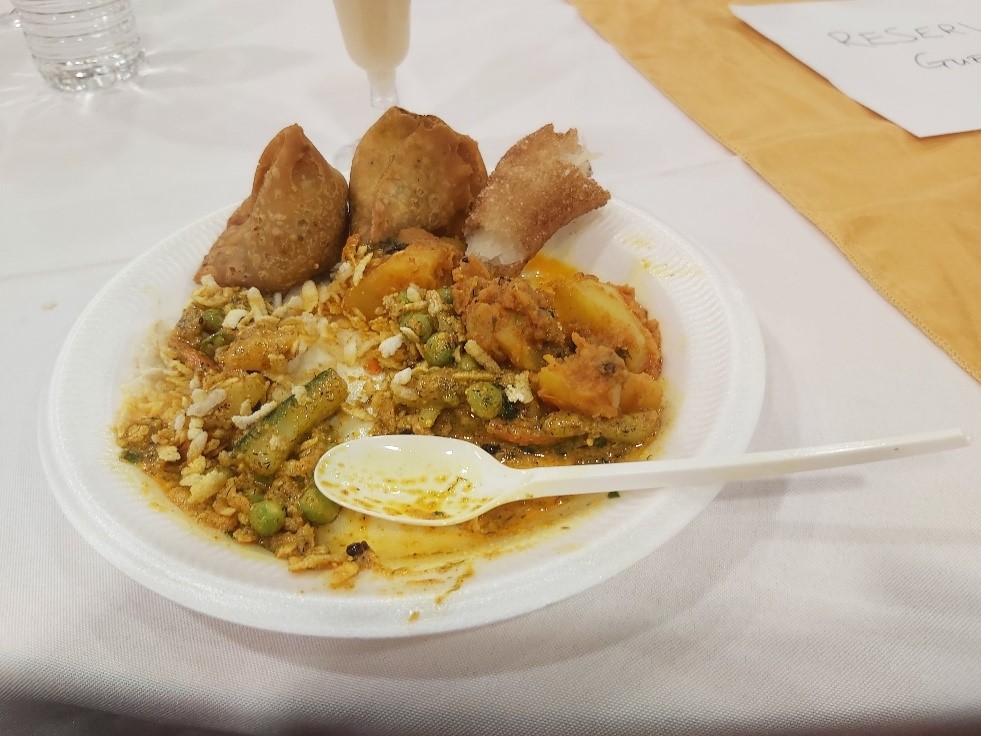Some images from this auspicious event, the last major one for early 2020 in the UK Nepali cultural festivals calendar, prior to the Covid 19 pandemic crisis lockdown. The Sherpa Calendar follows the Tibetan lunar calendar and elements (metal, fire, etc.) and animals and mythological creatures zodiac that is closely associated with that of ancient China, Japan and other East Asian cultures. Nepali New Year (Mid-April normally) follows a different lunar calendar calculated system: in 2020 it fell on 13th April. Whereas Sherpa New Year is closely linked to that of Tibetan, and to some extent Chinese New Year, with New Year for the Sherpas normally falling around the end of February.
The programme featured cultural performance (especially dance, song, music [including traditional musical instruments such as the Sherpa flute]) welcome to guests and invocation ceremony of candle-lighting to invoke auspicious spiritual energies for the year to come and to thank for the good that took place in the year passed, and to ward of negative energies and evil forces in the year just about to start.
Traditional Sherpa and Nepali foods, as snacks and main meal are important features, and on the liquid refreshment front, the milky coloured ‘chyang’ rice liquor and Sherpa and Nepali spiced tea (Masala Chya/Chai) are available. In addition to ceremony and cultural performances – very important for serving as foci for preserving and maintaining Sherpa identity in the UK – and enjoyment of food and drink, the whole evening provides the opportunity for important reunions, discussion of family and community affairs and social warmth interaction of kinds not found in the same ways outside of the community.
Here we provide links to a set of musical and dance performances, ceremony, and interviews from the Sherpa Association UK Gyalpo Losar 2047:
- Presentation of karda: https://photos.app.goo.gl/ZPsJzzsNZqwaTpnXA
- Losar opening Ceremonial with Ambassador: https://photos.app.goo.gl/ZEaiA1w9gbsSC8ch9
- Two male Dancers performance: https://photos.app.goo.gl/TbnJH2N9vSpcERvt8
- Female dance, solo: https://photos.app.goo.gl/BQ6rYXixcAACPGvm9
- Two female dancers performance: https://photos.app.goo.gl/xthveg5AcH8cJt5X6
- Four person female dancing group performance: https://photos.app.goo.gl/qsSGbDL4Znf6mKHv9
- Male and female dance group performance: https://photos.app.goo.gl/WD8sigcVs7rXPuaL9
- Interview with Mr Sana Sherpa: https://photos.app.goo.gl/HfCbaphfsnh5zcSh7
- Interview with Mr Tharka : https://photos.app.goo.gl/mf9E6Ci468mLhUgR8

Main hall of the Gyalpo Losar 2047 celebration programme at Ashford in Kent: all generations attend, with Sherpa community members and families travelling from London, the South West, and even in some cases the North and Wales for this most important major Sherpa annual cultural celebration of Sherpa identity and community spirit. Note the important presence of the Prayer Flags in the top of the picture honouring and reminding of the spirituality of Sherpa culture.

In many cases Losar celebration programmes also celebrate Sherpa culture through the wearing of traditional Sherpa costumes. Above is an example of husband, wife, daughter in traditional Sherpa attire (a very big thank you from the UKNFS to Mrs Mingma Sherpa [to right] who travelled with her husband and daughter from Blandford in Nth Dorset to take part in Losar 2047). Elsewhere in the Sherpa component of the UK Nepali community cultural and social heritage information resource, we have discussed traditional and functional Sherpa hats.

Traditional Nepali copper serving canteens: initial Nepali snacks (below) are provided first from the serving station, with after, a main feature of the Losar Programme (as with other Nepali cultural events and major functions also at the Embassy of Nepal in London, a main meal is served. Normally on major community cultural programmes such as Nepali New Year, Sherpa New Year, Dashain, and others, the VIP guests and dignitaries will be served at their tables by programme team members.

Traditional vegetable spiced pastries, Sel Roti, vegetable curry and beaten rice (chiura)
